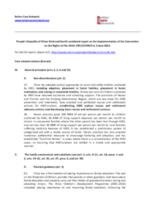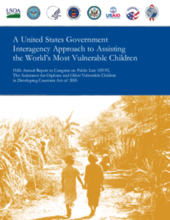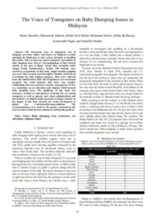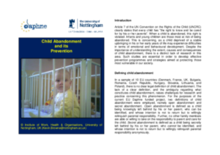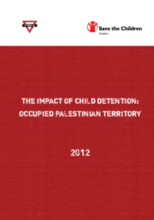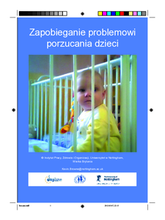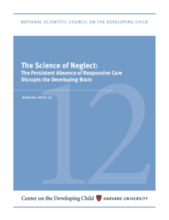Displaying 961 - 970 of 1090
The People’s Republic of China issued its third and fourth combined report on the implementation of the Convention on the Rights of the Child in June 2012. This extract of the report focuses on sections relevant to children's care and in particular those addressing Family Environment and Alternative Care
The Fifth Annual Report to Congress on Public Law 109-95, The Assistance for Orphans and Other Vulnerable Children in Developing Countries Act of 2005 highlights continued efforts made by the U.S. Government to improve coordination on behalf of vulnerable children in the past year.
Knowledge transfer is highlighted in this paper as a conceptual framework to understand mandated referral to Early Intervention (EI) services for young children with open child welfare cases.
This article describes research conducted in Malaysia on young people’s perceptions of “baby dumping,” or the abandonment of newborns and infants, a phenomenon that has become a “serious issue” in Malaysia.
This paper presents new estimates of the average lifetime cost per child maltreatment (CM) victim in the United States and aggregate lifetime costs for all new cases of CM incurred in 2008 using an incidence-based approach. The authors find that the lifetime economic burden of CM is approximately $124 billion. Given this substantial economic burden, the authors argue that the benefits of prevention will likely outweigh the costs for effective programs.
This document is an English language summary brochure of the Manual of Best Practice titled ‘Child Abandonment and its Prevention in Europe,’ specific to child abandonment in Romania.
This report aims at giving an insight into the treatment of children in armed conflict, with a primary focus on children in detention.
This document is a Polish language summary brochure of the Manual of Best Practice titled ‘Child Abandonment and its Prevention in Europe,’ specific to child abandonment in Poland.
This working paper from the National Scientific Council on the Developing Child examines child neglect and its impacts.
The CCS Guidelines is the “how-to” guide for instructing health and psychosocial field staff responding to children who have experienced sexual abuse in humanitarian settings.

